spOILed is a american film of genre Documentary released in USA on 11 october 2011
spOILed (2011)
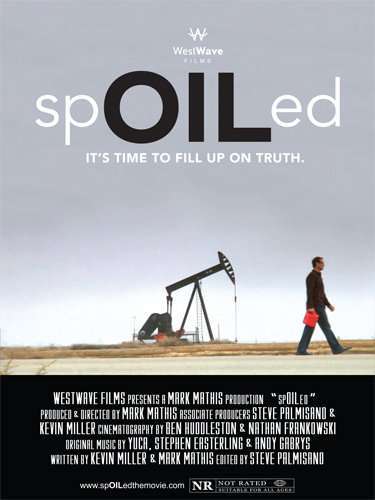
If you like this film, let us know!
Released in USA 11 october 2011
Length 1h30
OriginUSA
Genres Documentary
Themes Environmental films, Documentary films about environmental issues, Documentary films about technology, Disaster films
Rating66%










Spoiled (stylized as spOILed) is a 2011 documentary film about energy myths, environmental issues with energy, the problems with alternative energy, and the global warming controversy associated with energy. Spoiled also discusses wind energy, solar energy, fossil fuels, green energy, alternative energy, and sustainable energy as a part of its renewable energy documentary scope.
Synopsis
Spoiled begins investigating energy myths by asking if people today believe we are "addicted" to oil and if oil is destroying our lives the way other addictions do. The energy movie documentary explores human relationship to oil addiction, and reveals a pattern of misinformation, disinformation, and deception about energy myths.Comments
Leave comment :
Suggestions of similar film to spOILed
There are 8855 with the same cinematographic genres, 2813 films with the same themes (including 17 films with the same 4 themes than spOILed), to have finally 70 suggestions of similar films.If you liked spOILed, you will probably like those similar films :

White Horse (2008)
, 18minutesOrigin USA
Genres Documentary
Themes Environmental films, Documentary films about environmental issues, Documentary films about historical events, Documentary films about nuclear technology, Documentary films about technology, Disaster films
Rating69%





The beginning of the film starts with DeLeo, Bisson and Surkov driving through Kiev. This is introduced as the beginning of their journey to Pripyat, near the ground zero of Chernobyl. Once they reach the outpost outside the exclusion zone, we see that the area surrounding Pripyat is very deserted and dark. Once in the city, we see Surkov's old home, which he explains has been robbed of almost all its belongings due to looters. Yet there are still some mementos in the old apartment, including the wallpaper he and his mother put up, the training bars his father bought for him, an old rubber ball he claims was his favorite and a white horse poster plastered on the wall of his old bedroom. The pain he feels is evident. When he sees an old calendar on a door, he rips a large portion off, claiming "the year ended on April 26th". Outside the door of the apartment, he remarks how he wishes he could stay forever. He throws his old ball through the door and walks out of the apartment complex. The film ends with Surkov snapping some twigs in an old courtyard and then an image of the car they traveled in leaving the exclusion zone.
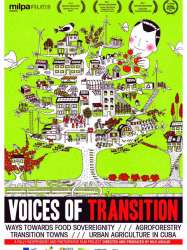
Voices of Transition (2012)
, 1h5Origin France
Genres Documentary
Themes Environmental films, La mondialisation, Films about the labor movement, Documentary films about business, Documentary films about environmental issues, Documentary films about technology, Documentaire sur le monde du travail, Disaster films
Rating75%





Using interviews and overlays of graphics and text, the film presents the current problems facing industrial agriculture. It explores why in the interviewees' view the current industrial model is not up to the task of feeding the world's people. According to the film every calorie of energy contained in a food source currently takes between 10 and 20 calories of crude oil in the production of fertilizers and transportation to produce, leading to a strong dependence of the cost of food on oil prices. As a result of peak oil and increasing oil prices this dependence will lead to ever increasing food prices. According to the film, this dependence already represents a significant weak-spot in the global food supply chain. Additionally, agriculture is already responsible for 40% of greenhouse gas emissions, contributing to climate change. Furthermore, the film argues that the overuse of inorganic fertilizers has been responsible for the loss of soil fertility and threatens the complete loss of usable soil within the next decades through soil erosion and sinking crop yields. These effects, according to the film, can only be partly mitigated by the increased use of those same fertilizers. The loss of workplaces, the concentration of land in the hands of a few (allegedly a farm closes every 23 minutes in France) as well as the dependence on large corporations are enumerated as side effects of the industrialisation of agriculture since the 1920s. Companies, such as Monsanto and Bayer, control everything from seed stock to fertilizers and the necessary chemical mixes for hybrid plants, thereby controlling the entire supply chain. The film argues that this development was supported through subsidies from the World Bank. Interviews with Vandana Shiva, the founder of the Transition Towns movement Rob Hopkins and various agricultural experts serve to argue this viewpoint. The dependence on crude oil is illustrated through the example of the wholesale food market in Rungis.

Genres Documentary
Themes Environmental films, Seafaring films, Transport films, Documentary films about environmental issues, Documentary films about historical events, Documentary films about nuclear technology, Documentary films about technology, Disaster films, Films about earthquakes
Rating67%





Surviving the Tsunami brings together social, environmental, and personal perspectives of the national catastrophe of the Fukushima nuclear meltdown. In the documentary, Kyoko Miyake travels back to her hometown in Namie, Fukushima, to revisit her old life and assess the trauma still lingering from the disaster. She revisits Namie, her mother's hometown and meets the people who depended on the success of the nuclear plant for their livelihood. The film also follows Bunsei Watanabe and Kyoko Miyake's Aunt Kuniko, two people who hope for the rejuvenation of Namie, despite the disaster that has occurred. Despite having lost family, friends, and jobs due to the meltdown and subsequent fear of the contamination zone, these two individuals are determined to rebuild their towns and neighborhoods and bring back the sense of community they once had. The film follows the residents of Namie, with emphasis on the experiences of Aunt Kuniko, as they come to terms with the reality of living in or near the "radiation zone" left in the wake the plant's nuclear meltdown. Surviving the Tsunami offers a different perspective on Japanese culture, national identity, human adaption, and global nuclear energy and proliferation.

Chernobyl.3828 (2011)
, 30minutesOrigin Ukraine
Genres Documentary, Historical
Themes Environmental films, Documentary films about environmental issues, Documentary films about historical events, Documentary films about nuclear technology, Documentary films about technology, Disaster films
Rating74%





Twenty-five years have passed since Valeriy Starodumov worked as a dosimeter scout in September 1986. Valeriy worked at the epicenter of the explosion, the reactor's operation area, which was the most radioactive part of the site. The protagonist, a direct participant in the operation, went to the roof himself and brought people there after a failed attempt to clear the area with robots. At the government level, it was decided to assign soldiers and cadets of military schools to the task of cleaning the roofs. Unique pictures of the events of 1986 are widely used in the film. "Chernobyl.3828" is dedicated to people who saved the world from the radioactive contamination at the cost of their health and life.
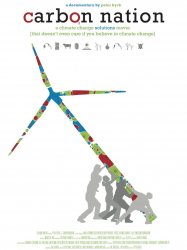
Carbon Nation (2011)
, 1h26Origin USA
Genres Documentary
Themes Environmental films, Documentary films about environmental issues, Documentary films about technology, Disaster films
Rating68%





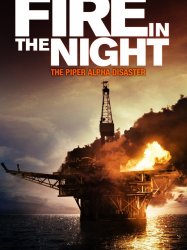
Fire in the Night (2013)
, 1h34Origin United-kingdom
Genres Documentary
Themes Environmental films, Seafaring films, Transport films, Documentary films about environmental issues, Documentary films about historical events, Documentary films about technology, Disaster films, Films about seafaring accidents or incidents
Rating75%






Black Wind, White Land (1993)
, 53minutesGenres Documentary
Themes Environmental films, Documentary films about environmental issues, Documentary films about historical events, Documentary films about nuclear technology, Documentary films about technology, Disaster films
 , 40minutes
, 40minutesOrigin USA
Genres Documentary
Themes Environmental films, Documentary films about business, Documentary films about environmental issues, Documentary films about historical events, Documentary films about technology, Disaster films
Rating57%






Sludge (2005)
Origin USA
Genres Documentary
Themes Environmental films, Documentary films about business, Documentary films about environmental issues, Documentary films about historical events, Documentary films about technology, Disaster films
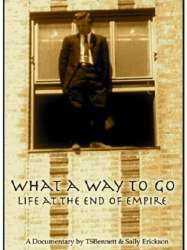 , 2h3
, 2h3Origin USA
Genres Documentary
Themes Environmental films, Documentary films about environmental issues, Documentary films about politics, Documentary films about technology, Political films, Disaster films
Actors Daniel Quinn
Rating75%





 Connection
Connection